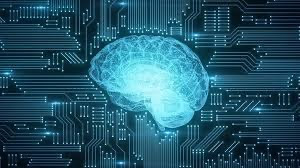Final Post: Is Technology Healthy?
Technology is a big part of our lives and has changed the way we live. As a college student, I use technology every day, and it’s something we’ve all learned to adapt to. There is a controversial question about whether technology is healthy for us or not. Some people think it’s improving the world, while others believe it’s having negative effects. After researching both sides, I think technology is having a positive and negative impact on our lives. On one hand, it keeps us connected to the world by providing real time updates and news, but it can also be misleading. Now, I will go into the different sides, and how it impacts society as a whole.
Screen Time
Before I checked my screen time usage, I thought my relationship with technology was healthy. But after seeing how much time I spend on my devices, I’m rethinking my habits. Technology has always been a part of my life; it’s what my generation grew up with. Unlike my parents, who witnessed the evolution of technology from no devices to the latest technology innovations, I’ve only known a world with constant access to technology. When it comes to defining a healthy relationship with technology, it’s less about the amount of time we spend on it and more about how we use it. As Britt Frank points out, “Implementing screen time boundaries helps us harness the power of technology without mindlessly scrolling.” Setting boundaries and being aware of how we are using technology can help us regain control over our digital lives. Personally, I feel that technology is taking up too much of my time. I spend a lot of it on social media, but often, I do so without thinking. I find myself opening apps out of habit, not purpose.
Is technology reliable?
Technology is both informative and misleading. Technology is efficient and helps us get information fast. Without it, we would be dependent on slower forms of information, like newspapers, which are far less convenient. However, technology can also be misleading. The internet is surrounded with fake news, biased reporting, and misinformation. According to University of Derby magazine they state, “When sharing news, people often don’t stop and think about whether the article could be fake and, in an age of instant internet access and social media platforms, news is shared to millions at the touch of a button.” The content we see online shapes our perspectives, especially when it comes to topics like politics. Online, we see how politics are often shaped. Propaganda and fake news are everywhere, and technology helps spread them.

























